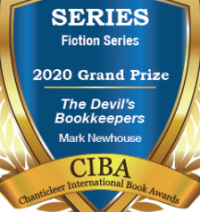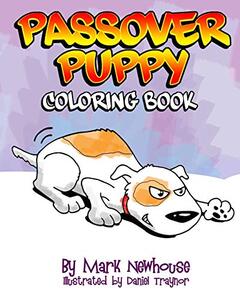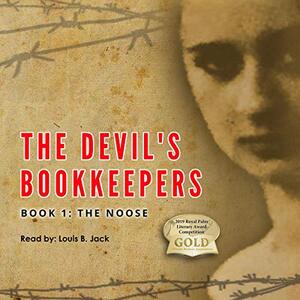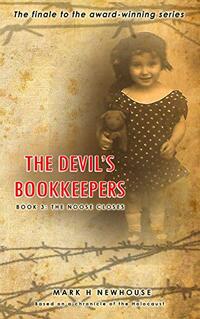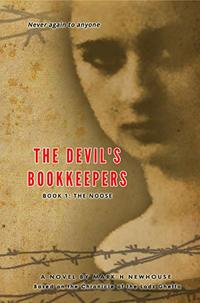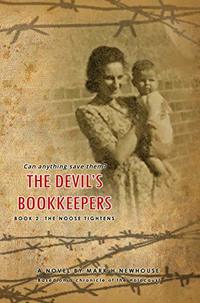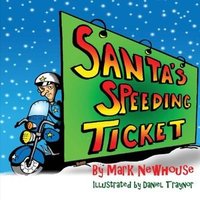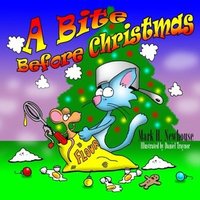What was your early life like and where did you grow up?
I was born in Germany to parents who miraculously survived Auschwitz and the Holocaust. We came to the United States when I was a baby, with almost nothing, and my parents had to learn English and became successful through hard work and an overwhelming drive to succeed. Their experiences and my being bullied for several years were the greatest influences on my life.
Who were some of your heroes as a kid and how have you incorporated them into your writing (if you have)?
I loved watching Perry Mason, a television lawyer who gave me a goal in life. Wanting to be a lawyer meant I had to work hard, get good grades, go to college and keep out of trouble. As a classroom teacher I felt many of my children didn’t have goals and early in the year helped them set up goals for the year, five years and ten years. In my mysteries, Welcome to Monstrovia; The Case of the Disastrous Dragon, and the new Case of the Crazy Chickenscratches, I’ve created a Perry Mason type lawyer, Jasper Doofinch, who defends the unique residents of Monstrovia, introducing law and hopefully giving children a set of positive role models to help them set goals. My other hero was Sherlock Holmes and I think that is why I love writing mysteries.
Why do you think that it is so important to introduce literature and reading to children at a young age?
As a classroom teacher, 6th grade, I always volunteered to work with the so-called ‘below-level’ readers and one common element was that most had never really seen reading as enjoyable. It was a chore and ‘work-book’. Parents reading with their children creates a closeness that in itself is enjoyable. I read with my children until their teen years and it gave us a way to open discussions and share time together. Reading is a calming activity when it isn’t all about testing.
Take us back to when you were writing your first book. What inspired the story and how did you go about picking a suitable title and book cover?
Most of my writing began with trying to do a good deed or solving a problem. A teacher wanted to help the starving children in Ethiopia by doing a jog-a-thon. I felt it should be an educational experience so I created a ‘Research-a-thon’, where children got pledges for answering questions based on newspaper articles about the Ethiopia crisis. When my superintendent notified the papers about the project, a Newsday reporter asked me to write it up and then asked me to create a similar project to raise money for the Statue of Liberty centennial. I did that and then was asked to write a teacher guide about the Statue of Liberty and Immigration. That was my first published book. I considered it a way to thank America for being my family’s home after suffering during the Holocaust in Poland.
What were some of your goals with the book "Rockhound Science Mysteries"? Did you test-drive any of the experiments before you wrote the book?
One year I had to teach science and I was the worst at experiments. I almost set fire to the classroom. Many of my students also couldn’t read the science text books. They were huge, and I found them boring. I thought about science and realized it’s a method of solving mysteries and kids love solving mysteries, so I wrote my first Rockhound Science Mystery, Rockhound’s Juiciest Case, where kids make orange juice ice pops to catch Myrtle, the meanest cafeteria lady in the entire world, and they loved it. I was surprised we sold it to an educational publisher right away and they wanted more books. They tried all the experiments so I didn’t risk setting my house on fire. LOL
Which of your books was the most memorable to write and why?
I love all my books, but the one I’m working on now is one I think that will be my most important one. The Devil’s Bookkeepers, is a historic fiction of a group of people who lived in the same ghetto in Poland where my parents lived and shows the struggles they faced as the Nazi noose tightened around them. I’m dedicating it to all people who suffer hate and genocide past, present and future. It is the toughest thing I’ve ever written, but a story about love and friendship that offers hope for everyone.
What is the main message that you wish to spread with "The Midnight Diet Club"? Did you ever have issues with your weight as a child?
The Midnight Diet Club is a book about a girl who is tormented by sinister bullies who may or may not be vampires. I was bullied as a child and know how devastating that is, so I want children to see that bullies are like vampires; they attack when they sense you are alone and defenseless. The best cure for bullying is to know you’re not alone. Join school and other clubs and make friends with others are two of the ideas I believe can be a huge help. And of course, talk to your parents, teachers and any adult who may be of help.
What sort of direction will you take with the next book in the Tales of Monstrovia Series? What is the story behind the name "Monstrovia"?
I love writing this comical mystery series that teaches about fascinating issues about law and the next book in this multi-award-winning series, The Case of the Crazy Chickenscratches, has Brodie, Emily and Jasper Doofinch trying to prove a man who turned his house into a zoo isn’t crazy while Brodie has to solve one of the most difficult problems many children face today. My books take place in a secret sector of the United States, called Monstrovia, because it is a safe haven for creatures that you wouldn’t want for your neighbors, but being American citizens must still obey the Constitution of the United States. It allows me to have a lot of fun with fantasy plots while teaching about our laws.
Has Daniel Traynor illustrated any of your books besides "A Bite Before Christmas"? What do you look for in a good illustrator?
Actually Dan is my partner-in-crime with a number of my books including Santa’s Speeding Ticket, Alice in Batsylvania, Dreidel Dog and my latest, Passover Puppy Coloring Book. I look for illustrators who can work from my ideas—I can’t draw a straight line—and then add their creativity to bring my characters to life. I love working with Dan because he creates such hilarious animated illustrations and is fast and doesn’t mind having to make changes. He can almost read my mind. Even my wife can’t do that. Don’t tell her I said that.
Your book "Dreidel Dog" centres around the theme of Hanukkah and the story behind it. Are you yourself Jewish or do you know anyone that is? What inspired this book?
I am Jewish and my parents were Holocaust survivors, but this fun book about a sneaky puppy is a fun way for anyone to learn about Hanukkah. Too many people think its about presents and it kind of gets lost in the Christmas rush, but it’s really a celebration of freedom and faith in miracles so I love this sneaky puppy, who also shows up in Passover Puppy Coloring Book.
What makes a good villain in a children's story?
I take my responsibility writing for children very seriously so I’m careful about such things as cursing, violence and sex in my books. In fact, the only murders in my mysteries are a giant, an egg gangster, and a bunch of prize-winning tomatoes, so how do I substitute for violence in my mysteries? Humor. The villains in my books tend to be more funny than scary. Even in The Midnight Diet Club, which is my award-winning YA novel about bullying, the villains are Dr. Ghoulash and his bodyguard, Ignor Amos and I play them more for laughs than for scares. I think kids like humor and I love these wild and crazy villains with their insane plots.
Do you like writing from the POV of a human or an animal more in your stories?
Definitely from a child’s point of view, but it’s important to remember that it is the child who must usually solve the problem in the book. In my books, I want readers to see the underdog young heroes, male and female, solving problems, not with magic, nor violence, but with intelligence and resourcefulness. They are real children, with real problems, who become problem-solvers.
Besides children's books, have you ever written anything for adults? If not, do you ever plan on doing so?
I have written a number of stories for adults that have won various prizes and appear in a number of anthologies. I am currently finishing work on a historic fiction, The Devil’s Bookkeepers, which is about the Holocaust and the place where my parents were two of the less than 5,000 survivors from more than 250,000 inhabitants. It is a story of a man who will do anything to save his wife. It teaches that love and friendship can exist in the worst conditions humans suffer. It offers hope in a world still plagues by hate and genocide. I’m excited it will soon be ready for several contests, a great way to build buzz about a book.
